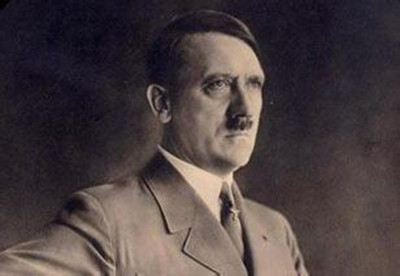On the morning of the 12th March 1938, German soldiers crossed the border into neighboring Austria.
1938年3月12日上午,德国士兵们浩浩荡荡越过边境进入邻国奥地利。
They were greeted not with bullets and guns, but with roses and carnations, so much so that the action became known as the Blumenkrieg, the war of flowers.
这个国家迎接的不是子弹和枪支,而是玫瑰和康乃馨,后世之人称此为花的战争。
During my ten years at party conferences or at rallies with Adolf Hitler, I certainly witnessed my share of enthusiasm, but the degree of enthusiasm that was prevalent in Austria at that time was not only surprising to us but also quite unbelievable.
在我与阿道夫·希特勒10年生涯的党会议或集会中,我当然看到他传递给我的热情,但热情的程度,当时在奥地利的流行不仅让我们惊讶也觉得不可思议。

The Austrian government, destabilized by the Nazis for years, had finally succumbed to Hitler's bullying and offered no resistance.
面临纳粹多年施压的奥地利政府终于屈服于希特勒的欺凌并且毫无抵抗之力。
Most of the Austrian people, envying what they saw as the economic success and prestige that Hitler had brought to Germany, now welcomed their German neighbors.
大多数嫉妒希特勒带给德国经济上的成功和声望的奥地利人现在欢迎他们的德国邻居。
Hitler's first great gamble of expansion had paid off.
希特勒的第一大赌博似的扩张终于尝到了甜头。












